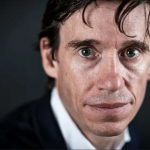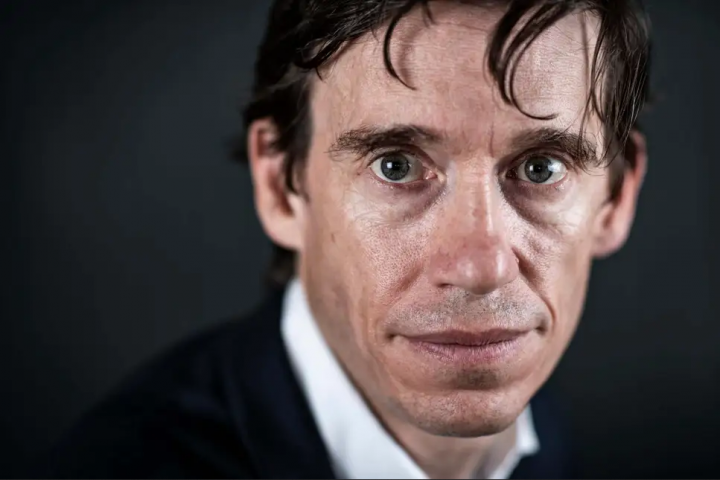Tories must rise above the Boris bluster and stick to the centre ground
The new Conservative Party may have a Trumpian flavour but it is not defined by Trumpian trash-talk. In fact, you have only to watch Boris Johnson or Jacob Rees-Mogg at the Conservative Party conference to see how polite they can be. It is like encountering a certain type of public-school boy in a pub — could such well-spoken men, so generous with spending, so concerned about nature, really have said what I thought they said? And did they really smile when I turned my back? Did he really do what I think he did? Could I prove any of it? And am I taking it all too seriously?
Such tricks are now a feature of government. The new leaders are charming in person, and then sack you by text, they claim to respect all the establishment conventions before flouting them, promise to do what they cannot deliver, are disloyal and yet demand loyalty, and scrupulously avoid the “how” of anything. All this ambiguity allows their supporters to maintain that Johnson is “really a liberal”, that a moderate Brexit deal is coming, and that the party is returning to the centre ground.
But you feel it in the way he treats MPs. It is not so much that Johnson has “removed the whip” from 21 of us — one of whom has served in Parliament since 1970. Or that Mrs Thatcher never did anything like it. It is the way he did it — claiming the bill was a vote of no-confidence when it wasn’t, and then relabelling it a “surrender bill”; attacking us for blocking no deal, while maintaining that no deal is “not an outcome I am aiming for, and not an outcome that I want”; suggesting it was a temporary suspension then telling our local parties that we could never stand again as MPs.
It reminded me of how Johnson made me apologise for suggesting he was in favour of no deal, and then came out three days later for no deal. Or how he said: “I would like to make it absolutely clear that I am not attracted to arcane procedures such as the prorogation of Parliament”. He then prorogued, insisting that this had nothing to do with driving through Brexit; and then implied that by over-ruling the prorogation, the Supreme Court was conspiring to block Brexit. And by then most of the parliamentary party were applauding him in the chamber. It was at that point that I realised how much our party had changed.
It is now naïve to think that the PM will be weakened by failing to deliver Brexit by October 31. It has been clear to some of us since May that this promise would be unachievable. It should now be obvious to everyone. The House has passed a law, blocking no deal and requiring an extension. And Johnson has put very little effort since into securing a deal: he has not submitted realistic proposals to the EU, and he has not reached out to the moderate Labour MPs whose votes he would need (instead he has gone out of his way to antagonise them in the House). But he still insists that Britain will leave on October 31.
This is not true, he cannot believe it is true, and his supporters must at some level know that it is not true. And yet he will not be blamed for any of it. He will be loved as a man who “knows where he is going” by people who know that he could never have got there. Challenging him is like boxing against a man wrapped in an armour of marshmallows.
Trump is more up front — he hits you around the head with a 36-word tweet. Johnson prefers 900 words at a time, burying words such as “bum-boy” or “surrender”, within a vast extended routine of quotation, imprecision and equivocation. He will compare the EU to Hitler’s attempt to create a European super-state, in much the same way that Rees-Mogg can say Brexit is “Agincourt, Crecy — we win all those things”.
No mainstream German or French politician would make such comparisons (although Serbs and Russians do). These English politicians half get away with it, because English nationalism — like Johnson himself — never seems entirely serious. And it is this ambiguity, this veneer of irony, which may yet allow him to win a majority, and drive through a no-deal Brexit — for which everyone except himself will be blamed.
How could he be defeated in an election? Not by asserting that he is spinning fairy-stories — or by believing in the inevitable triumph of reality and prudence (I tried to run a leadership campaign against him in that way and lost).
A polite appeal to logic is doomed, when so many are looking for a hand grenade to throw at the establishment, and are picking the candidate most likely to blow the system up.
Instead, you would have to restore energy, a flexibility and an exuberance, to the centre of British politics. Politicians of the centre ground will have to learn to be less polite. They must give themselves permission to express their anger at the wrong-headedness of government, and the shameful undignified conditions in which some of our fellow citizens live.
And above all they must find a public that shares their anger at the shoddiness of our politics. And they might have to wait until Brexit is done. But the triumph of Trumpian politics is not inevitable.
Not even in an age of social media. Moral and political energy are founded in truth — and that thrives not on the extremes but in the centre of British politics.
Article first published in the Evening Standard, 30 September 2019.








